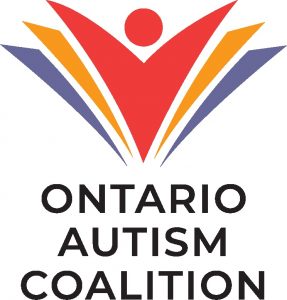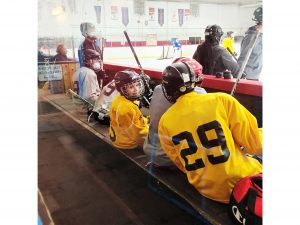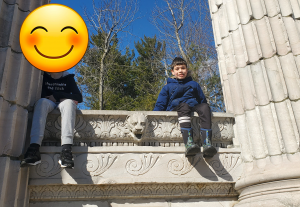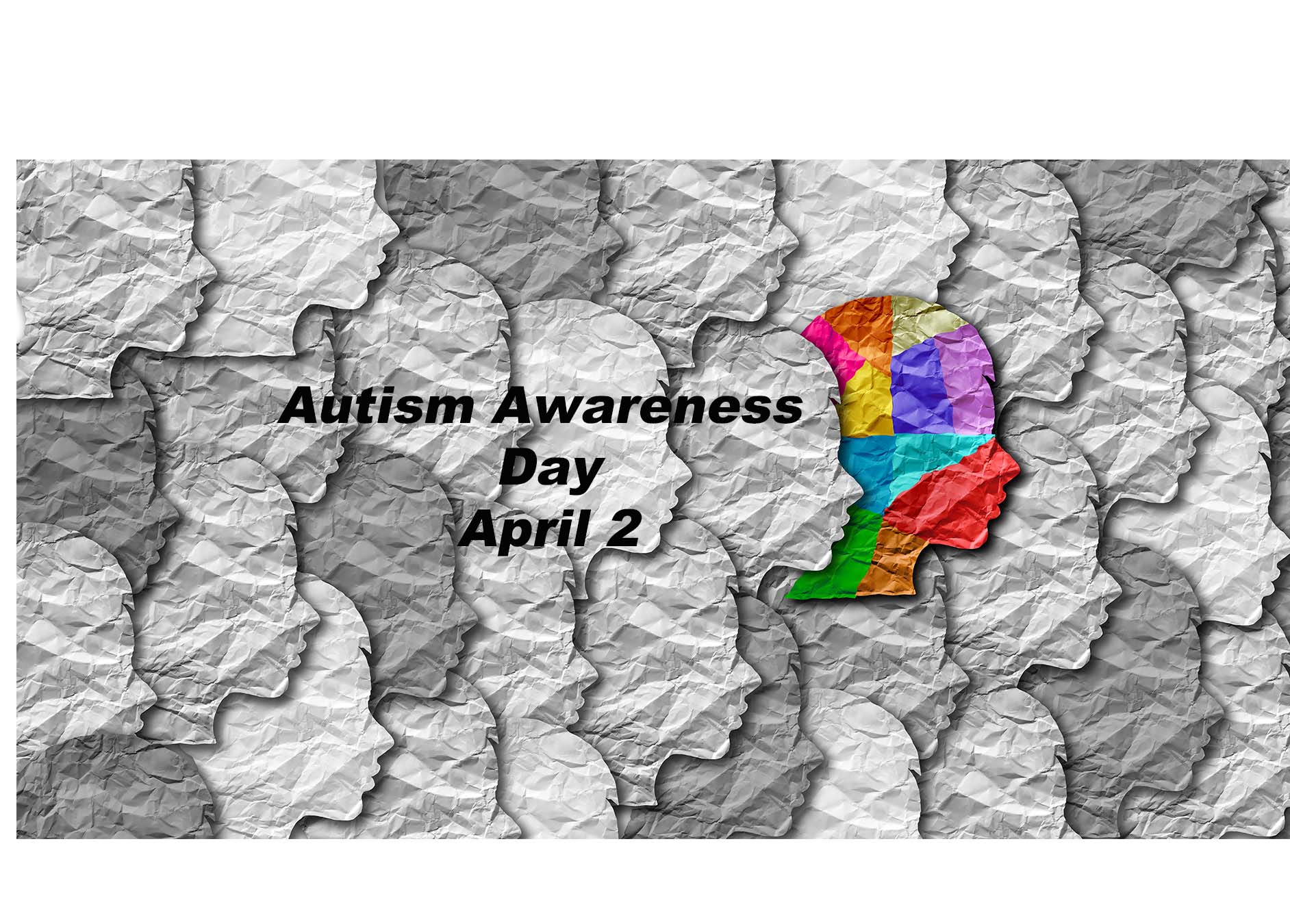Autism Awareness Day – what families cope with to support their autistic kids
April 3rd, 2022
Yesterday was Autism Awareness Day. Many hear about the day but don’t have much awareness of what life is like for kids and their families. I am one among a group of parent advocates who rise at dawn and work through the night. We try to dissect public policy and demand that Ontario create and maintain a needs-based system of supports for all autistic people.That’s a high calling.
In our world where no two autistic people are alike, we speak up when professionals fear to. We endure layers of prejudice and backlash from the public. Check us out on Twitter sometime. We move through the ranks of barricades strewn throughout our kids’ lives and then see this same dynamic play out among policy makers and ministry honchos. Ever met with a ministry official who claimed not to receive hundreds of letters from desperate parents? I have. We live in a Dickensian world of “Please sir, I want Needs- Based Supports.”
 In my travels, I have met many autistic children and an increasing number of adults. When my son Charlie was little, I formed a playgroup with a friend. The need was so great that our group grew exponentially to 100 families in one year. For a while it was a welcome oasis for kids with disabilities and their parents. We built a play space with no judgment of our kiddos (or us). Feeling miserable and distraught at that time, I chatted people up, rolled out the red carpet and the kids had fun in the safe space that we created.
In my travels, I have met many autistic children and an increasing number of adults. When my son Charlie was little, I formed a playgroup with a friend. The need was so great that our group grew exponentially to 100 families in one year. For a while it was a welcome oasis for kids with disabilities and their parents. We built a play space with no judgment of our kiddos (or us). Feeling miserable and distraught at that time, I chatted people up, rolled out the red carpet and the kids had fun in the safe space that we created.
If you organize something like this, you open yourself up to everyone’s story as well as their anger and sorrow. If you’re the one willing to listen, you’ll get walloped by the experience from time to time. The play group was intense. I learned quickly I was over my head and struggled. Taking in so many firsthand accounts from worried and massively disappointed parents was a heavy load. I too had an easily distressed child which kept me on high alert. This experience put my search lights on. I had never been required to live in high gear like this before and I am still in that mode. There’s nothing like teaching yourself discipline when your child needs you.
I have seen a lot and heard even worse. I know nonverbal or non-speaking little kids who can’t respond to you in any way (yet). I’m buddies with chatty kids gifted with special skills who can name every infectious disease known to man but can’t walk on sand, or make change. I have met kids who are homeschooled because parents could not bear another day of finding yet more unexplained bruises on their child’s body. I met a middle school girl who so desperately wanted to make friends that she pinched and pushed her peers in order to get their attention. It only got her relegated to watching recess from the inside of her classroom alone. There was no help for her to develop her social skills.
In my role as an activist, I know a young woman who, as a child, used her fingernails to work on her back teeth until she pulled them all out because she was so desperate to be a good girl at her desk and not fidget. Today, in her mid-thirties she’s angry and she has every right to be as her flawless memory can conjure every bully she ever encountered, every teacher who would not let her doodle her nervousness out on paper during class. She can recall every peer who singled her out and humiliated her for being different. Today she is a brilliant artist, a writer with two university degrees; but she cannot secure full time employment.
I have met kids who have been excluded from school with no plan to bring them back into a classroom setting they can manage. One friend of mine, so broken from disappointments with the school system, sold everything she owned and moved to Panama seeking to give her brilliant child a space to restart his life and hoping to find a more accepting culture.
I organized a summer soccer group and met a teenager with the exact same speech patterns as my son home-schooled by his single mum. Her son had been blocked from the same programs that had Charlie accessed. But school was an impossible setting for him. t was uncanny how his turns of phrase mirrored how Charlie had expressed himself. He was a friendly boy who mixed up pronouns. He couldn’t respond to simple questions and most of his communication came in the form of echolalia – echoing words and sound.
At the time, that boy was sixteen and Charlie was six. It’s impossible to predict any child’s outcome but this young man never had ANY interventions. Charlie has been in a specialized ABA teaching environment full time for 6 years and has had 8 years of speech therapy with a Speech and Language Pathologist (SLP) at the top of her game. Now at the age of 12, Charlie’s speech disorder is detectable but he is easily understood and responsive to others. You might not even notice that we’re working on his speech disorder. That’s how far he has come.
I have a pal from my son’s ABA centre (I’ll call him D) who is now a man in his early twenties, friendless and jobless in spite of a sunny disposition. He rides the TTC with little else to do. I met him at my son’s therapy centre. In his late teens at the time, he was a rarity at the centre full of kiddos and God knows how his parents could afford to send him. Private centres in Ontario can accommodate fortunate people who can pony up the money. He’d arrive at the centre to start his tutoring program as I was leaving.
If D likes you, he’s all in. As I walked into the centre he’d bound over to me with his long sturdy legs, face me nose to nose, and pepper me with information. A collector of VHS tapes (mostly Disney) D would list off all of the movies that he wanted for Thanksgiving, Halloween, Christmas, Easter, his Birthday – you get the picture. When his bookshelves fill up with tapes, his mom and dad have him donate the surplus back to Value Village. He leaves itemized lists on the wall of the videos he wants – with pictures -for one therapist who has been working with him since he was a little guy. His therapist collects the recycled videos and gifts them back to D. It’s a joke they share and a small kindness, it also tells you a lot about my friend D and where he finds comfort.
If I were to try to ask D a question outside of his preferred topics he’d waiver, retreat and quickly steer me back. I recognized his apprehension: “Don’t go there lady, I need to tell you about these things and only these things.” That’s our game. Years of watching my son’s speech therapist gently expand my son’s repertoire allowed me to see some of what D was doing. If he can control the topic, he won’t be blindsided by the unexpected. My son used this technique too but D mastered it.
me back. I recognized his apprehension: “Don’t go there lady, I need to tell you about these things and only these things.” That’s our game. Years of watching my son’s speech therapist gently expand my son’s repertoire allowed me to see some of what D was doing. If he can control the topic, he won’t be blindsided by the unexpected. My son used this technique too but D mastered it.
One day I arrived to find D counting his change and setting off for his first solo bus ride on the TTC. I turned white. “What! All by himself?” I squeaked out to his therapists who were grinning with pride. Off he went with that famous bounce in his step. Days earlier there had been a report of an autistic man assaulted by some thugs. The story was fresh in my mind. I wanted to run after D, drive him home and tell his mom to stop this insanity. I almost sped after the bus to follow him home. The centre’s staff all laughed at me of course. This program had been years in the making and he was ready.
I know a mother of six who has seen it all. We have been close friends since our children attended the same preschool for children with disabilities. She’s managed every medical emergency, illness, and upset from growing pains.This resilient lady is so exhausted by her youngest high needs autistic child that she has to hide in the corner of her kid’s bunk bed to catch 20 minutes of sleep.
My dear friend was tricked out of her son’s therapy program by voluntarily signing him out herself; bypassing clinical oversite. She was told that her son was doing, “So well!” and it was time to send him to school. The admins neglected to mention that clinicians, who lead the teams cannot ethically discharge a kid who is not ready. She never once met with her son’s clinician or knew of his/her existence. This eight-year-old released from service was not toilet trained, would run full speed into traffic, smeared his feces, could not respond to his name, speak or use alternate communication methods, sit in a chair for more than 20 seconds, or eat a meal at one sitting. He had massive heath issues with his digestive system and several teeth removed due to rot.
This devoted mum was born in Yemen and cannot read in English. She has no choice but to trust those who run schools and programs. This same child came home from school one day crying and struggling in his snowsuit, stretching his arms and careening in his car seat. Mom discovered that her son was wearing a long-sleeved shirt with the sleeves sewn shut. He had been struggling with all his might to release his hands. When she removed the shirt, he was crying in pain, his fingers curled, unable to wiggle them. This nonverbal child could not tell her what happened nor did the school explain why this happened. Our whole playgroup wept with this mother.
My friend accepted the school’s verbal apology and just had to suck it up. Perhaps another mom would have called the human rights tribunal, a lawyer, the media or at the very least torn a strip off the school principal. She just couldn’t. Many would think this is an extreme case but it’s only another story mixed in with thousands.
We just let autistic kids fall through the cracks. When they become adults, exclusions become permanent. It’s easy. Schools are not mandated to hire people with specific training in autism. My son has yet to re-enter the school system. He has had a team build him up and strengthen his coping skills for six years now. We won the lottery. We’re one of the few legacy families receiving funding. When Premier Doug Ford was elected, the provincial autism program (albeit clunky and historically unfair) was destroyed.

My boy, now twelve years old plays on an all-abilities hockey team. He’s the munchkin in the group of youth letting him join the fray. Many of these young men and women are autistic. They cheer for my son and include him.They pound the boards when he scores, there’s a lot of fist pumping and patting him on the helmet. This league ekes out an existence at arenas that are in ill-repair, where no one else wants to play. The players get 1 hr a week. A healthy chunk of these players need 1:1 instruction from the entrance to the exit to learn skills beyond why they have come eg.- dress themselves and get enough exercise- not to mention more ice time.
In the dressing rooms I watch aging parents dutifully dress their adult children layer by layer to get into their hockey gear. These senior citizens lower themselves onto the sticky floor to jam enormous feet into skates while their giant children with floppy loose ankles wait for the procedure to end. Some are couples, wordlessly working in tandem, are long accustomed to the routine prepping of their child for activities. One impatient kick or just standing up too soon could cause tragedy.
My son’s ABA therapist – a skilled hockey player- taught Charlie how to skate at an outdoor rink free from distractions and loud noises. He came with us to Charlie’s first hockey lessons. He trained us both how to get the gear on. My hands shook with nerves and uncertainty as we layered on the protective armour. I was so overwrought that to snap me out of it he said, “What do you think is going to happen here?” That smarted, but he was right.
Our journey to that point started at the walk from the car to the building, managing the music from loudspeakers, the Zambonis, the buzzers, strange men who terrified my son and there we were in a dressing room. Today, he dresses himself independently and only needs help with his skates. If I were to explain all of the steps that got us there, this essay would become a book. The therapist helped my son conquer it all.
After all this, Charlie’s therapist shadowed my son until he developed the ability to follow drills on his own. The journey was 4 years in the making and culminated in him becoming the pip squeak in an all-abilities team. Next year we hope to put him in a house league with peers and I am debating with myself not to disclose that he is autistic. If I do, there’s a high possibility that they will not return my phone call or tell me enrolment is full. My fellow advocates know this to be all too true.
Today, the day after Autism Awareness Day, I will meet with my fellow directors at the Ontario Autism Coalition. We’ll look at the trending and impact of our social media campaign for those 53,000 plus kids – #50KIsNotOK. We have been stuck in purgatory fighting to save, rebuild, and improve the Ontario Autism Program for 17 years and with all this awareness out there, it’s never been grimmer. Awareness abounds: all of the professionals standing in wait and currently rethinking their career choices, all of the schools with unprepared and untrained instructors are all aware. Painfully aware. With all of these good people ready and willing to work together, we tie their hands behind their backs.
My son, one of a tiny minority, has had that gold standard service you may have heard about. Soon we’ll be on our own in the system, but we are so much better prepared. My friends whose children are neuro-typical are blissfully unaware of the barriers, the time, energy and skill required to navigate through community services. Then there are the forgotten 53,000 children in this province who have received little or no therapy, the ignored adults, the parentless and severely affected autistics and those who cannot pass on the same parental devotion needed to raise any child.

On April 2nd, I connected with the mum of another autistic 12 year-old at our local Guildwood Park in Scarborough, Ontario. Her gazelle-like son is a climber and he’s into cartography. For some reason, this park is littered with remains from demolished buildings. It’s a graveyard for Grecian pillars and wall facings from old banks. Without much chit chat, this boy taught Charlie how to scramble up concrete. It was the kind of nail-biting moment when most mothers would tremble. Then they went off out of sight for a few calculated moments on their own in search of rare birds (Charlie’s passion). They both got a soaker and discovered they each like Minecraft.
My new mom friend and I did not say “boo.” We knew instantly that both of our boys NEEDED this free-range easy-going morning. I hoped desperately that it would not end in a broken arm but I also knew that everything I and his team had worked for brought us to that moment. I could let go, let him experience some danger and still be close by. He’s ready to grow up. I pray that he has 100’s more experiences just like this. I’ll see that he does.
Dear reader: Help a full life materialize. It’s O.K. if you only think of Autism on April 2nd. Like that Easter Sunday church goer, we know you mean to come more often but it’s all good. You are welcome, have some tea. Just leave a big donation on your way out. You are part of the family. Share some light, kindness and understanding. Support Needs Based services.
Donations can be sent to ontarioautismcoalition.com
Karen Bojti, Director with the Ontario Autism Coalition
The OAC’s mission is to secure permanent, scientifically supported, government-funded therapy, treatment and services for individuals with autism and their families

